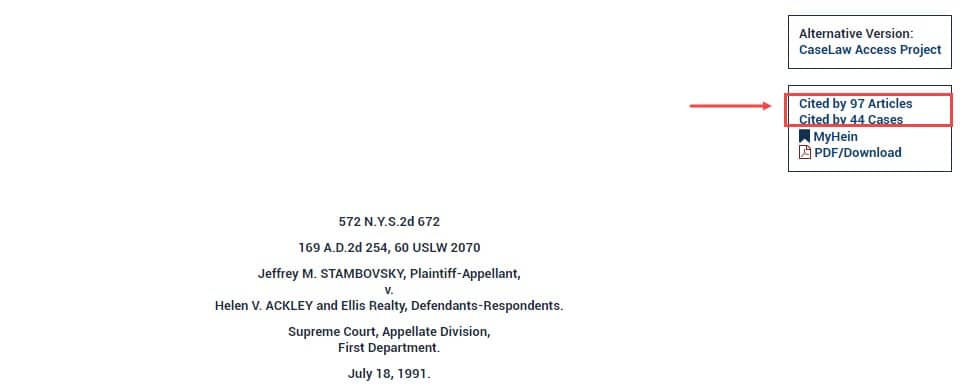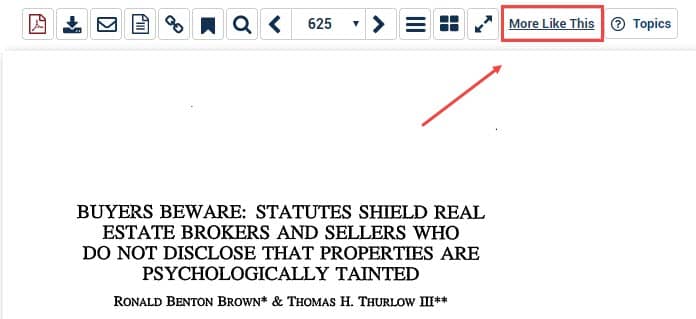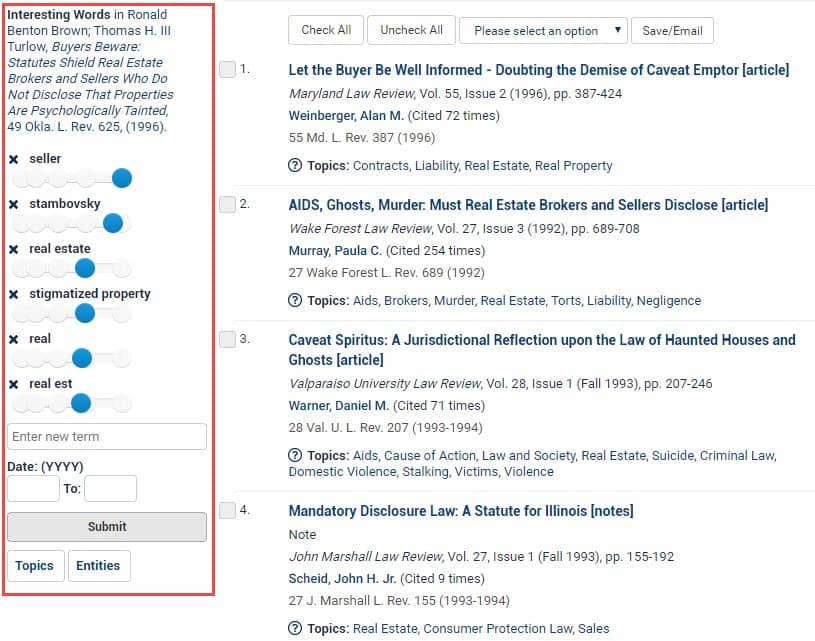Did you know there was actually a case in which a house was declared legally haunted? This Halloween, expand your knowledge of spooky scary case law. Read all about the Ghostbusters ruling below.
Hauntings on the Hudson
In the late 1960s, a rundown Victorian house sat vacant, nestled atop a cliff overlooking the Hudson River. Built more than 70 years earlier, the mansion boasted nearly 5,000 square feet, intricate woodwork, and plenty of old-world charm.
Enter George and Helen Ackley, a married couple looking for a spacious waterfront home for themselves and their four children. What they did not know, however, was that legends about the house being haunted had circulated the surrounding town of Nyack for years. Upon buying the house, the couple’s initial joy was met with caution from the locals. With fear in their eyes, the neighborhood children offered their warnings.
It didn’t take long for George and Helen to discover the poltergeists themselves. True to tale, the family began to experience phantom footsteps, mysterious knockings, and the slamming of doors around the house. They came to find that the house was inhabited by not one, but three ghosts—an unnamed Navy Lieutenant from the American Revolution and a married couple from the 18th century, Sir George and Lady Margaret. According to the Ackley family, a number of strange happenings occurred over the next twenty years, including:
- Helen’s children and grandchildren began to receive odd gifts such as rings, dinnerware, coins, and other trinkets. The objects would later vanish entirely.
- One morning, Helen’s daughter, Cynthia, was awoken by the violent shaking of her bed—a ritual that would occur most mornings afterward (until Cynthia announced to the ghosts that she was on spring break and would like to sleep in).
- One day, Sir George sat in midair, watching Helen paint the ceiling in the living room. He approved of the color.
- In later years, Cynthia’s fiancé, Mark, awoke to see Lady Margaret leaning over him as he slept.
A decade into living with the ghosts, Helen decided to write about her family’s paranormal experiences, submitting her stories to Reader’s Digest and the local newspaper at least three times between 1977 and 1989. Soon after the first submission, her husband George died of a heart attack.
Haunted, as a Matter of Law
The Initial Case
In the early ’90s, Helen decided to sell the house. She entered into a contract with buyer Jeffrey Stambovsky, agreeing to the price of $650,000 with a $32,500 down payment. Hailing from the hustle and bustle of New York City, however, Stambovsky was unaware of the folklore surrounding the house. Though seemingly proud of her paranormal pals, Helen Ackley never mentioned the hauntings either.
Upon learning about the poltergeists, Stambovsky sued Ackley and her real estate broker for fraudulent misrepresentation and requested a rescission of his contract of sale. When a New York Supreme Court dismissed the action based on caveat emptor—or “buyer beware”—Stambovsky appealed.
The Appellate Court
In 1991, the appellate division of the New York Supreme Court agreed to hear the case. The court made a basic conclusion that whether or not the ghosts were real, the mere fact that the hauntings were reported and publicized affected the value of the house. Therefore, the house was declared haunted “as a matter of law.”
Because she had previously published about the poltergeists, Helen Ackley was unable to deny their existence. However, sticking with the “buyer beware” doctrine, the appellate court held that she was not liable for damages. Instead, due to the fact that “haunted” cannot be easily ascertained with a simple house inspection, the appellate court simply rescinded Stambovsky’s contract. Stambovsky was no longer required to buy the house, but did forfeit his down payment.
In the interest of avoiding such untenable consequences, the notion that a haunting is a condition which can and should be ascertained upon reasonable inspection of the premises is a hobgoblin which should be exorcised from the body of legal precedent and laid quietly to rest.
After the publicity gained from the trial, Helen easily sold her house. Since then, notable residents have included film director Adam Brooks, singer Ingrid Michaelson, and singer/rapper Matisyahu. There have been no reported paranormal instances since Ackley’s move.
Who You Gonna Call? HeinOnline.
Finding the Case with Fastcase
Read Stambovsky v. Ackley for yourself in HeinOnline to discover the spooky details and on-point Ghostbusters references. Users can find the case through HeinOnline’s partnership with Fastcase.
Fastcase is a leading next-generation legal research service that features powerful “best-case-first” tools that make research faster than ever. This partnership offers HeinOnline subscribers access to a wide array of federal and state case law and enables users to access the full text of cases without the hassle of using multiple research databases.
Quickly finding a case in HeinOnline couldn’t be easier. From the HeinOnline welcome page, select the Case Law tab located above the main search bar. Enter the citation into the search bar. Users may also utilize the “Fastcase Lookup,” hyperlinked in blue underneath.

Entering the citation into the Case Law search bar will automatically redirect the user to the case in question. Users with Fastcase Premium will be able to see the full interaction of HeinOnline’s ScholarCheck feature with Fastcase cases. View the number of articles and cases which cite the case in question in the upper right-hand corner of the case document.

Scholarly Work on the Case
Due to the odd nature of Stambovsky v. Ackley and its famous conclusion, numerous scholarly works have delved into the case. Navigate to the Law Journal Library and perform the following full-text search to bring up nearly 100 results: “Stambovsky v. Ackley” OR “Ghostbusters ruling”.
Relevant results include:
- AIDS, Ghosts, Murder: Must Real Estate Brokers and Sellers Disclose
- Caveat Spiritus: A Jurisdictional Reflection upon the Law of Haunted Houses and Ghosts
- Seller Beware – Burden of Disclosing Defects Shifting to Sellers
- Buyers Beware: Statutes Shield Real Estate Brokers and Sellers Who Do Not Disclose That Properties Are Psychologically Tainted
Let’s click on the last result from the list above: Buyers Beware. From the article itself, users can enhance their search to discover similar titles by using the More Like This feature. The feature provides a list of similar articles based on “interesting words” which have been extracted from the original article using an algorithm. Within the document, select the button marked More Like This.

Users will be redirected to a list of results, from which they can adjust the boost factors of the interesting words, add a new term, or select a date range to modify the search results.

Hein ain’t afraid of no ghost, and neither should you be. See what else you can find!
Did You Enjoy This Post?
Like what you see? Check out some of our similar works below:
- Yo, Ho, Ho and a Bottle of Rum: A Tale of Piracy and Maritime Law
- Is a Picture Worth a Thousand Words? Exploring Emojis and the Law
- Turtles, and Tortoises, and Terrapins – Oh, My!
- May the Fourth Be with You (and Your Research)
Don’t miss out! Hit Subscribe to have blogs like these sent directly to your inbox.



